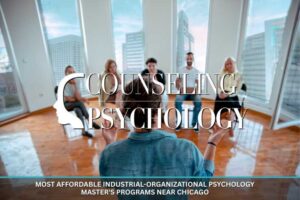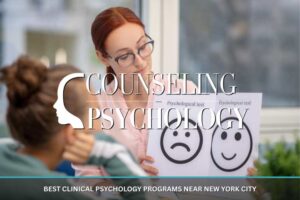What is the Difference Between an LPC and a Therapist?

Before exploring specific licensure paths, it’s important to understand how the mental health field is evolving. Demand for trained professionals is growing rapidly, and with that growth comes increasing confusion about titles, credentials, and responsibilities. According to the U.S. Bureau of Labor Statistics, jobs for mental health counselors are projected to grow significantly over the next decade, reflecting the need for clarity in professional roles. One frequent question is the distinction between “therapist” and “LPC.”
This question is more than a matter of semantics. It touches on legal definitions, state regulations, and professional competencies that shape how mental health services are delivered. For those entering the field, knowing the difference can clarify educational choices, licensure goals, and career direction. Resources like the Counseling Psychology Career Guide offer additional insight into various roles and how to prepare for them.
Understanding the Role of an LPC
A Licensed Professional Counselor (LPC) is a mental health professional who has met specific educational, examination, and supervised experience requirements to provide counseling services. LPCs are licensed at the state level and typically hold a master's degree in counseling or a related field.
LPCs support clients through issues such as anxiety, depression, trauma, relationship challenges, and life transitions. Their services may include individual therapy, group therapy, career counseling, and psychoeducation.
Example Roles for LPCs
- Providing one-on-one therapy in private practice settings.
- Offering crisis counseling in schools or community clinics.
- Supporting recovery in substance abuse treatment programs.
Real-World Example:
Sarah, an LPC based in Atlanta, works in a Veterans Affairs outpatient clinic. She specializes in trauma-focused therapy for veterans coping with PTSD, combining cognitive-behavioral techniques with a deep understanding of military culture.
What Does “Therapist” Mean? A Broader Category
The term "therapist" is not a specific license—it's a broad label that refers to professionals who provide mental health treatment. This includes LPCs, but also Licensed Clinical Social Workers (LCSWs), Licensed Marriage and Family Therapists (LMFTs), and licensed psychologists.
Each of these roles has distinct qualifications, licensing requirements, and scopes of practice, which can significantly impact the services they provide and the populations they serve. Despite these differences, all may be referred to as therapists in both casual conversation and professional environments, which can add to the public’s confusion.
For instance, while an LPC may focus on general mental health counseling, an LMFT might work specifically with couples and families, and an LCSW may have specialized training in systemic issues and case management.
Therapist Titles and Their Licenses
| Title | License Type | Typical Degree | Core Focus |
| LPC | Licensed Professional Counselor | M.A./M.S. in Counseling | General mental health counseling |
| LMFT | Licensed Marriage and Family Therapist | M.A. in Marriage & Family Therapy | Couples and family therapy |
| LCSW | Licensed Clinical Social Worker | MSW | Social work, systems-level care |
| Psychologist | Licensed Psychologist | Ph.D. or Psy.D. | Assessment, diagnosis, therapy |
Real-World Example:
James, based in California, refers to himself as a therapist, but he is licensed as an LMFT. He specializes in relationship counseling and works with couples navigating separation or parenting challenges.
Education and Licensure Pathways
Becoming an LPC or any type of licensed therapist requires a graduate degree, clinical training, and licensure. However, each licensure path differs in scope and requirements.
These differences can influence not only the type of work professionals do, but also the settings in which they are eligible to work and the populations they are best equipped to serve. For example, some licensure paths emphasize systems-based interventions and case management, while others focus more heavily on individual therapy or psychological assessment.
Understanding these nuances is essential for anyone seeking to build a long-term career in the mental health field.
Education & Licensure Comparison
| Credential | Required Degree | Supervised Hours | Licensure Exam |
| LPC | Master's in Counseling | 2,000–4,000 (varies by state) | NCE or NCMHCE |
| LCSW | Master of Social Work (MSW) | 3,000+ hours | ASWB Clinical Exam |
| LMFT | Master's in MFT or equivalent | ~3,000 hours | National MFT Exam |
| Psychologist | Doctorate (Ph.D./Psy.D.) | 1,500–2,000 hours postdoc | EPPP |
Real-World Example:
Maria pursued an M.A. in Clinical Mental Health Counseling and chose the LPC route. After two years of supervised practice and passing the NCE, she opened a private practice focusing on adolescent clients.
Where They Work and Who They Help
Licensed mental health professionals serve in diverse settings—from schools and hospitals to nonprofits and telehealth platforms. While their workplaces may overlap, specific licenses may align more with certain environments or populations.
LPCs often work in:
- Community mental health centers
- Private practices
- Correctional facilities
Therapists with other credentials may work in:
- Hospitals (LCSWs)
- Family service agencies (LMFTs)
- Academic settings (psychologists)
Real-World Examples:
- Andre, an LPC in Texas, provides teletherapy to veterans across rural communities.
- Dana, an LCSW in Illinois, works in a large hospital’s behavioral health unit, coordinating care for patients in crisis.
How to Choose the Right Path
Selecting the right mental health credential involves personal reflection, research, and alignment with career goals. Each license enables impactful work—but may differ in required training, populations served, and legal scope depending on state laws.
Action Tips for Choosing a Mental Health Path
- Research state licensure boards to understand local requirements.
- Reflect on the populations or settings of most interest (e.g., families, trauma, community clinics).
- Explore counseling psychology master's programs that align with the LPC path.
- Connect with licensed professionals to learn about their day-to-day work.
Explore the Licensure Resources page and the Master's Program Guide to find accredited programs and understand the steps to licensure.
Take the Next Step in Your Counseling Career
Choosing between becoming an LPC or pursuing another type of therapy license is not about better or worse—it's about fit. Every credential represents a commitment to healing, listening, and guiding others toward well-being. Whether starting a degree program, preparing for licensure, or exploring options, each step taken reflects a dedication to mental health care.
The mental health workforce needs passionate, educated professionals. By taking time to understand the difference between an LPC and a therapist, aspiring counselors equip themselves to make meaningful, empowered career choices.
Learn more about Careers in Counseling Psychology and take the next confident step in your professional journey.
Sources
- U.S. Bureau of Labor Statistics. "Substance Abuse, Behavioral Disorder, and Mental Health Counselors."
- National Board for Certified Counselors. "National Counselor Examination (NCE)."
- American Association for Marriage and Family Therapy. "Licensure Information."



